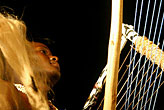The Dar es Salaam Renaissance

‘Dar es Salaam is abuzz. It’s giving birth to a novel artistic landscape,’ says Chambi Chachage. ‘Well, at least new in scope.’
Dar es Salaam is abuzz. It’s giving birth to a novel artistic landscape. Well, at least new in scope.
A cursory look at www.everythingdar.com/ and other calendars gives a glimpse of what is happening in Dar on a daily basis. Of particular interest are the originality, novelty and locality of oratory and literary expressions. They remind one of the making of the Harlem Renaissance.
Just to recap, the Harlem Renaissance was a cultural movement that partly swept New York City in the early 20th century. It produced music luminaries such as Ella Fitzgerald, Billy Holiday and Duke Ellington. The movement also produced great poets such as Langston Hughes, Countee Cullen and Claude McKay. It was in these times that the famous Apollo Theater came into being.
The works of these artists and artistes are still immortalized in the African imagination. Langston Hughes’s poem ‘A Dream Deferred’ continues to inspire critiques of the post-colonial ‘African condition’ – no wonder one voluminous biography is entitled ‘Thabo Mbeki: The Dream Deferred.’ It is also not surprising that the Ella Fitzgerald jazz song ‘Drop me off in Harlem’ was also used as a soundtrack in the movie ‘Malcolm X’ starring Denzel Washington. And even today writers are still grappling with Countee Cullen’s poetic question: ‘What is Africa to me?’
Such is a fervour one finds in Dar to the extent that at the risk of engaging in a stereotypical linear comparison it is tempting to refer to all this as ‘The Dar es Salaam Renaissance.’ Of course the term ‘renaissance’ is not as innocent, especially when viewed in the context of what happened to Africa and the then so-called ‘New World’ after the European Renaissance. Yet it is a term that captures well the cultural awakening that tends to usher social change in any society.
It is in this regard that we need to pay close attention to what is happening in Dar’s cultural space, for in it are seeds of a social transformation-cum-revolution. What do you see when you encounter youngsters with locally produced t-shirts with Kiswahili or ‘Kiswanglish’ messages such as ‘Harakati…’ and ‘Na-struggle…’? Or what do you hear when you listen to them rapping about societal injustice? Mind you these artistic products are not made by NGOs or donor money!
What is interesting is that this renaissance in Dar es Salaam is pulling people from all walks of life and age as it crystallises a social consciousness necessary for societal transformation. The 'maiden' Pen & Mic event attests to that. It featured poetic expressions from the likes of Vitali Maembe, Saida Yahya-Othman, Fid Q, Langa Sarakikya, Walter Bgoya and Mzungu Kichaa. You can read a bit about the event or relive it altogether at http://vijana.fm/2011/02/09/pen-mic/
Yet that is not the only space in Dar. There is the Fanani Flava poetry club that meets every last Tuesday of the month at A Novel Idea Bookshop in Slipway. Who knows, maybe a century from now its blog athttp://fananiflava.blogspot.com/ will be one of the leading archives of the Dar es Salaam Renaissance. Surely such a space needs to expand, lest it become, if not remain, elitist.
Last but not least there is Soma Book Café at http://www.soma.or.tz/ and its Soma Literary Magazine, among yet many others, is a space for fusing oral and literary consciousness. Interestingly, the upcoming issue of the magazine features Maya Wegerif, whose poem ‘Who tells our story?’ at http://mayawegerif.blogspot.com/ is a recipe for an African (cultural) revolution.
BROUGHT TO YOU BY PAMBAZUKA NEWS
* Chambi Chachage is an independent researcher, newspaper columnist and policy analyst, based in Dar es Salaam, Tanzania.
* This article was first published on the Udadisi blog.
* Please send comments to [email protected] or comment online at Pambazuka News.
